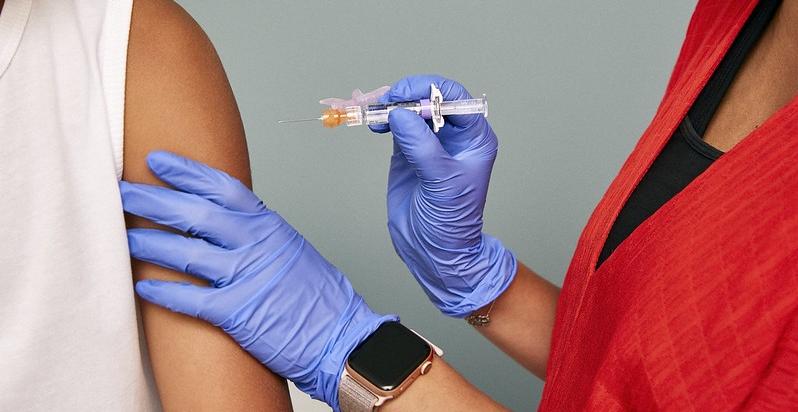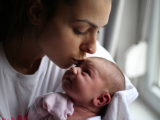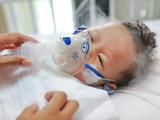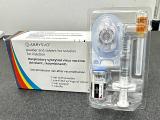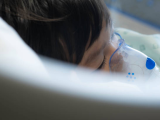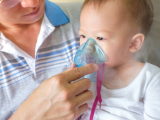The Food and Drug Administration (FDA) vaccine advisory group today recommended that that the agency approve GSK's RSV vaccine for people 60 and older, a day after it recommended Pfizer's RSV vaccine for the same age-group.
The FDA advisers had some concerns over isolated reports of Guillain-Barre syndrome (GBS) and other neurologic conditions in the vaccine recipients, similar to instances reported in Pfizer's RSV vaccine data. The Vaccines and Related Biologics Products Advisory Committee (VRBPAC) members said, however, that GSK's efficacy date met or exceeded targets, including in groups with underlying health conditions, who are at higher risk for RSV complications. Some members, though, raised concerns about a potentially quick rollout of the vaccine in the fall, alongside COVID-19 and flu shots.
Overall VRBPAC support was strong, compared to a closer vote yesterday on a recommendation for Pfizer's RSV vaccine. The group voted on both safety and efficacy. For safety, the vote passed with a 10-2 recommendation. For efficacy, the recommendation was unanimous.
Strong efficacy across at-risk groups
GSK's vaccine, called RSVPreF3 (Arexvy), is a recombinant product that contains a glycoprotein antigen based on the RSV A subgroup and is given with a proprietary adjuvant—the same one in GSK's Shingrix shingles (herpes zoster) vaccine—designed to boost the immune response. It is administered as a single 0.5-milliliter dose.
The group based its efficacy assessment on clinical trials that enrolled nearly 25,000 people, half of whom, as the control group, received a saline injection. Overall efficacy was 82.6% against lower respiratory tract illness, with an efficacy of 94.1% against severe disease. Efficacy was high for both RSV A and RSV B and was even higher, at 93.8%, in the oldest age-group in the study, those ages 70 to 79.
Though VRBPAC members were pleased with the efficacy findings and that the study covered risk groups, they said they were eager to receive data on year two of the study, due in April, which includes the bad RSV season last fall. Adam Berger, PhD, who directs the National Institutes of Health's clinical and healthcare research policy division, said he hopes the FDA evaluates the new data before it makes a final approval decision.
Members of the group said they also looked forward to more data on severe disease and duration of neutralizing antibodies.
Concerns about GBS, other neuro conditions
Though the safety part of the recommendation passed with a more solid margin than for yesterday's 7-4 vote, with one abstention, on Pfizer's RSV vaccine safety data, the group still had concerns about GBS and similar neurologic conditions.
The GBS case occurred in a vaccine recipient from Japan. There were also two cases of acute disseminated encephalomyelitis (ADEM), one fatal, in those who received the GSK vaccine. Levels for both conditions were thought to exceed background rates for the conditions.
Some VRBPAC members said the ADEM cases were puzzling, because they both occurred at the same study site in a group that received the flu vaccine at the same time. Several noted that only adequately powered post-marketing studies could tease out whether the ADEM and GBS cases reflect a true safety signal. Some noted that GSK's RSV vaccine contains the same but less of the adjuvant used in the company's Shingrix vaccine, which includes a warning about GBS in the prescribing information.
We have a vaccine program to worry about, not just the pathogen.
During yesterday's deliberations on Pfizer's RSV vaccine, the group also raised concern about isolated GBS cases in the clinical trials.
Some members worried about the safety concerns and public messaging about them against the backdrop of misinformation and a heightened focus on safety that have swirled around COVID-19 vaccines. Hana El Sahly, MD, the group's chair and associate professor of molecular virology and microbiology at Baylor College of Medicine, said, "We have a vaccine program to worry about, not just the pathogen."
The CDC estimates that RSV sends 60,000 to 100,000 older adults in the United States to the hospital each year, with about 6,000 to 10,000 deaths. Older people, like younger children, are at the highest risk for RSV complications. The virus can worsen conditions including asthma, chronic obstructive pulmonary disease, and congestive heart failure.
